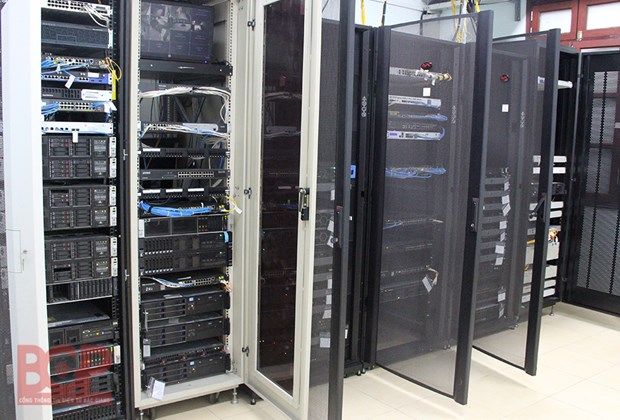Bac Giang moving towards digital transformation
 Bac Giang is developing IT infrastructure for digital transformation. (Photo: bacgiang.com.vn)
Bac Giang is developing IT infrastructure for digital transformation. (Photo: bacgiang.com.vn)
Bac Giang (VNA) - The northern province of Bac Giang is striving to develop information technology infrastructure for digital transformation and also the development of smart urban areas.
According to Vice Chairman of the provincial People’s Committee Mai Son, Bac Giang targets its digital infrastructure being able to provide an average of 14 GB of data each month per broadband subscriber by 2025, with the figure to increase to 27 GB by 2030.
It also envisages that each 100 local people will be connected to 75-100 IoT devices by 2025 and 150-200 by 2030. Consideration is also being given to the construction of an information technology industrial park.
Son said that priority will be given to building and upgrading local fibre optic lines to serve the development of broadband services and smart urban areas.
 IT is applied to handle administrative procedures in Bac Giang province. (Photo: bacgiang.com.vn)
IT is applied to handle administrative procedures in Bac Giang province. (Photo: bacgiang.com.vn)
The province is striving to expand its broadband infrastructure to all villages while having more than 80 percent of households connected to cable internet by 2025.
Half of the local population are to have e-payment accounts within the next four years and all residential areas will have 5G coverage.
By 2025, the locality will prioritise digitalisation in key sectors such as education, health care, transportation, agriculture, and the environment, and develop the provincial capital Bac Giang city into a smart and modern urban area.
According to Secretary of the provincial Party Committee Duong Van Thai, as digitalisation is an inexorable trend, the local Party Committee is working to issue a resolution on digital transformation right this month, having asked local authorities at all levels to join in the process.
Bac Giang province is home to 1,422 base transceiver stations (BTS), with 3G and 4G services covering the entire province. There are more than 1.77 million mobile phone subscriptions and over 1.25 million internet subscribers.
Total telecommunications revenue in 2020 topped 1.9 trillion VND (82.17 million USD). There are 658 IT and telecommunications enterprises in the province who earned over 153 trillion VND in revenue last year.
Vietnam is one of the pioneering countries in building a national digital transformation programme, with the three main pillars of digital government, digital economy, and digital society.
The Party Central Committee issued Resolution No 52-NQ/TW in September 2019 on a number of policies and guidelines regarding the country’s engagement in the fourth Industrial Revolution, with an emphasis on speeding up digital transformation.
The Prime Minister issued Decision No 749/QD-TTg approving the national digital transformation programme by 2025 and vision towards 2030.
Minister of Information and Communications Nguyen Manh Hung described digital transformation as an institutional revolution, saying institutions need to be adjusted flexibly in order to adapt to new technologies, products, services, and models.
Only innovation and creation can help Vietnam escape from the middle-income trap, he emphasised.
Under the programme, Vietnam expects to be among the top 50 countries in terms of e-government by 2030, while the digital economy is to contribute 30 percent to GDP.
Vietnam last year began its national digital transformation programme focused on a “digital government, digital economy and digital society”.
Under the programme by 2030, the country will adopt new technologies and models, completely overhaul the way the Government operates, updates business operations, changes the work style of citizens, and creates a safe, secure and humane digital environment.
The digital economy is projected to produce 20 percent of the country’s GDP in the near future, with at least 10 percent of each economic sector part of the digital economy, while annual labour productivity will likely increase at least 7 percent.
Experts said the country is set to be among the top 50 countries in the information and communication technology development index within the next five years./.













